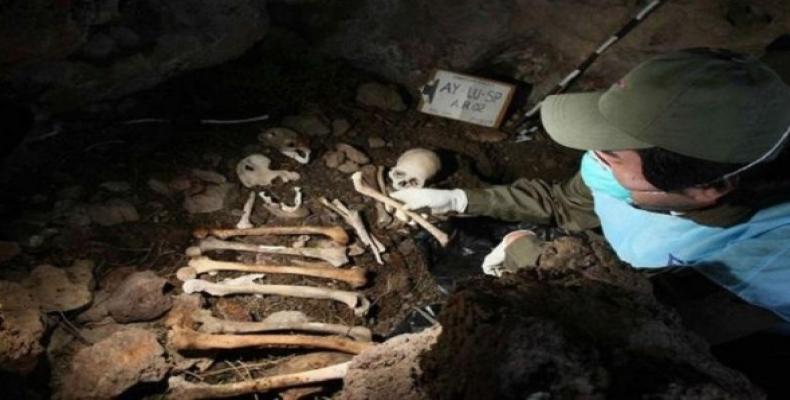Lima, June 25 (teleSUR-RHC)-- The exhumation of a 30-year-old mass grave high in the Andean slopes of Peru's Ayacucho region has uncovered the bodies of 18 people thought to have been killed in the 1980s, Peru's La Republica newspaper reported.
The exhumed remains have been sent to a laboratory for forensic analysis, with the hope of identifying the bodies and returning the remains to family members.
After working for a week to reveal the mass grave, forensic investigators and local prosecutors have signaled that the remains appear to be of peasants from Vilcashuaman.
Due to conflicting reports, it remains clear whether the peasants were killed by the Peruvian army or revolutionary groups.
From 1980 to 2000, Peru's so-called “war on terror” counter-insurgency strategy aimed to wipe out armed groups that posed a significant treat to the state. In two decades of dirty war, the Peruvian army killed dozens of rural civilians accused of collaborating with guerrilla groups.
Peru's Truth and Reconciliation Commission — launched in 2001 after the fall of Alberto Fujimori's dictatorship to investigate scores of forced disappearances, massacres, and human rights violations — documented widespread abuses at the hands of both the Peruvian army and rebels.
Armed struggle in Peru between the government and Maoist revolutionary groups, such as Shining Path and Tupac Amaru Revolutionary Movement, claimed close to 70,000 lives over two decades of internal conflict, according to the Truth and Reconciliation Commission. The commission also reported the existence of more than 4,000 mass graves in Peru.
Peru's internal conflict was the third longest in Latin America after Colombia's more than 50-year and Guatemala's more than 30-year civil wars.
Last fall, Peruvian authorities returned the remains of 80 victims of 1980s counterinsurgency operations to their families in the Ayacucho region, where the most recent mass grave was found. Many of Peru’s disappearances have been seen as part of the U.S.-backed Operation Condor, which saw dictatorships quash rebellious voices and leftist movements throughout the continent.


